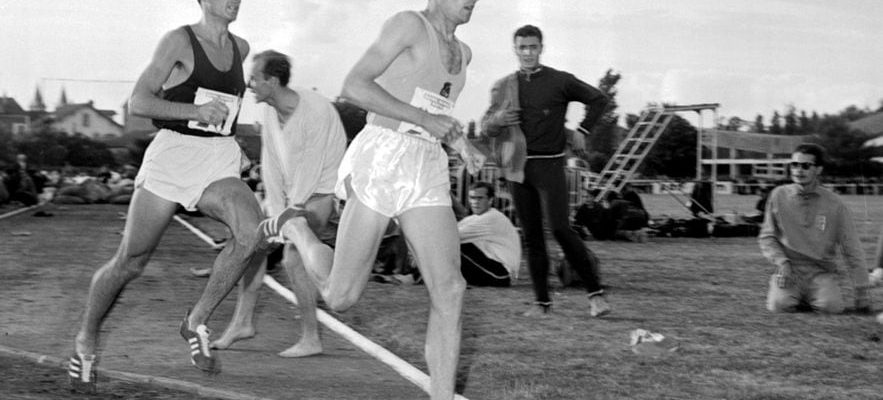Star of French athletics in the 1960s, half-distance runner Michel Jazy died this Thursday, February 1 at the age of 87. Double European champion, Olympic vice-champion over 1500 meters in 1960, Michel Jazy held nine world records in the middle distance during his career and his exploits aroused immense popular enthusiasm. Star of French sport at the time, alongside cyclist Jacques Anquetil, he shone from the 800 to 5000 meters.
In an article published by L’Express on January 9, writer Philippe Delerm remembered the Tokyo Games in 1964 and the defeat of Michel Jazy, the big favorite. Of his “irremediable sadness”. “We didn’t necessarily like the winners that year. We loved Raymond Poulidor, narrowly beaten in the Tour de France. We loved Christine Caron. We loved Michel Jazy,” he wrote.
“We loved sadness
1964. The year I turned 13. The first year of my passion for sport. The year of the Tokyo Olympics. The year of melancholy. The Jazy year. It’s an understatement to say that we were waiting for these Games of the Empire of the Rising Sun. All year round, all these blankets. Sports magazines, of course. But also those of Paris Match. And two undisputed stars: Kiki Caron, Michel Jazy. Christine Caron, the brand new teenager – but at the time, swimmers were often teenagers. And for Jazy, the age of maturity, the almost promised victory in the 5,000 meters. Beaten by Kathy Ferguson, who broke the world record in the 100 meter backstroke, Christine will have a magnificent gesture. On the podium, raising her head, she will see that her rival was crying with emotion during the American anthem. And she took her hand, as if to console her for having beaten her.
During this race in Melun on June 24, 1965, Michel Jazy broke two world records, that of the two miles (8’22” 6/10) and that of the 3000 (7’49”). He leads here ahead of Australian Ron Clarke.
© / afp.com/STAFF
We had Jazy left. Jazy on the radio, because television did not broadcast events contested with such a time difference. Jazy on the little blue and white transistor radio that I received for Christmas. It was raining in Tokyo that morning. Enough to raise hopes a little, because the beautiful, elegant and long stride of Michel Jazy would not cope well with too heavy a ash. Did he feel too strong, was he a little afraid? When he attacks just after the bell, almost a lap from the finish, we of course share the announcer’s excitement, but at the same time we say to ourselves that it’s much too early. It’s way too early. At the start of the final straight, the American Bob Schul overtakes him, then the German Norpoth, and even the second American Dilinger. But we feel that the French champion has given up. He only wanted victory.
There were no world championships. The only world title in athletics was the Olympics. It’s a long time, four years. Certainly, in 1965, Jazy will beat all the records, and all his opponents. But his sadness from Tokyo is irremediable. There is this photo where he is prostrate, both arms resting on a metal barrier. I will have a hard time convincing my editor that it is indeed this photo that I wanted, on the cover of my album on the beautiful moments of sport. Jazy is not alone in this photo. We didn’t necessarily like the winners that year. We loved Raymond Poulidor, narrowly beaten in the Tour de France. We loved Christine Caron. We loved Michel Jazy. We loved sadness.
Taken from I remember… Pérec’s stride (and other sporting madeleines), directed by Benoît Heimermann. Threshold, 226 p., €19.90.
